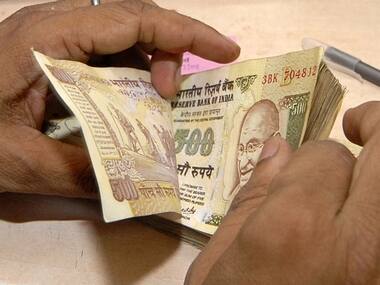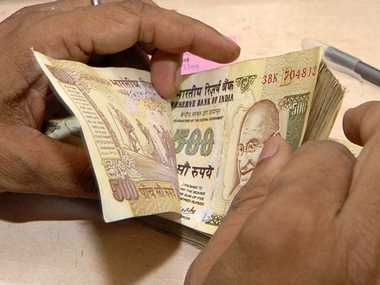New Delhi: Exposing their investors to a severe risk of losing money in the stock market, promoters of approximately one-third of listed companies have pledged shares worth a collective amount of more than Rs one trillion.
A study by Crisil Research, a part of the country’s top rating agency Crisil, has found that “promoters of 31 percent of the 1,214 listed companies, with market capitalisation of Rs 1 billion (Rs 100 crore) or more, have pledged a portion of
their shareholding.”
“The total pledge works out to be Rs 1.1 trillion worth of market capitalisation as on November 18, 2011,” Crisil Research said in the study released today.
Crisil Research said that the companies with significant promoter share pledging included Gujarat Pipavav Port (100 percent of promoter shares pledged), Tata Coffee (100 per cent), Vikas WSP Ltd (100 per cent) and ICSA India (98.5 percent).
Other listed by Crisil were Edserv (97.9 per cent), Ansal Properties & Infra (97.7 per cent), Blue Coast Hotels (97.7percent), Western India Shipyard (97.3 per cent), GTL (96.4 percent) and Birla Power (95.8 percent).
Those with over 90 percent promoter pledging also included AGC Networks, Andhra Cements, Gayatri Projects and Kingfisher Airlines.
Promoters pledge their shares mostly with banks or non-banking financial institutions (NBFCs) as collateral to raise corporate loans or to raise money in their personal
capacity to infuse equity in the company.
[caption id=“attachment_139068” align=“alignleft” width=“380” caption=“Reuters”]
 [/caption]
[/caption]
It further noted that investment in such companies exposes “an investor to severe price volatility in case a promoter is not able to meet payments or provide additional collaterals in a falling market.”
The value of pledged portion of the promoter shareholding is linked to the daily stock price, and therefore a fall in the stock price below a threshold level leads to a margin call requiring promoters to pledge additional shares to make up for the erosion in value.
If the promoters are unable to meet the margin call, the lenders cover the losses by actively selling the pledged shares in the market, leading to further price fall.
Commenting the matter, Crisil Research Senior Director Mukesh Agarwal said: “In 2011, the capital markets have been highly volatile due to looming concerns of high domestic inflation, rising interest rates and tepid global economic environment.
“These concerns have triggered a fall in the stock prices creating pressure on the promoters who have pledged shares to make good the loss in the value of the collateral.”
Agarwal further said that the investors, especially retail shareholders, are generally oblivious of such details, and eventually incur losses because of sharp fall in prices.
The study also found that promoters have pledged 25 percent of more of their holding in as many as 183 companies, while the promoter pledging was in excess of 50 per cent for 107 companies.
In as many as 14 companies, promoters have pledged 90 percent or more of their holding, thereby exposing the companies to the risk of losing promoter control and also higher share price volatility if the prices fall from their current levels.
With banks, which generally provide project-specific funding, shares are mostly pledged as secondary collateral and the promoters are given adequate time to bridge the gap between the original value of shares pledged and the reduced value.
The risk of selling the promoter shares provided as collateral is not so high in the case of banks. However, with NBFCs, since shares are pledged as primary collateral, they trigger the margin call when share prices fall and breach the threshold price and promoters are asked to bridge the gap immediately.
Failure by the promoter to provide additional collateral results in sale of shares in the secondary market by the NBFC and the corresponding sharp decline in share prices.
Crisil, in its report, also listed out companies like Gati Ltd, United Spirits, Amar Remedies, Mangalore Chemicals & Fertilizers, Gujarat NRE Coke, JSL Stainless, Wockhardt, Spicejet, Sterling Biotech, Plethico Pharma, Essar Oil, S Kumars Nationwide, Sanghi Industries, Omaxe, Subex and Shree Ashtavinayak Cine Vision as those with over 80 perent of promoter share pledging.
The power generation, IT and ITeS, infrastructure, and pharma and healthcare companies have seen higher levels of pledging.
PTI
)